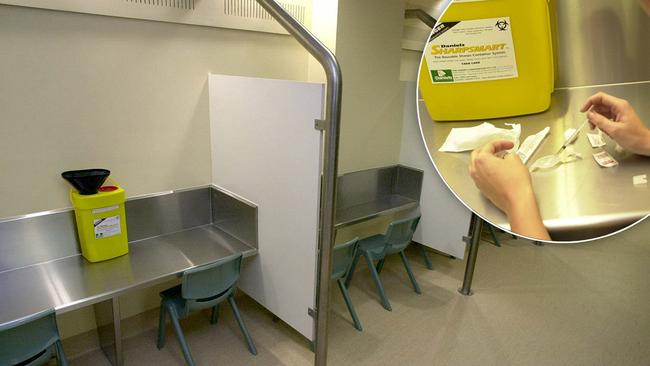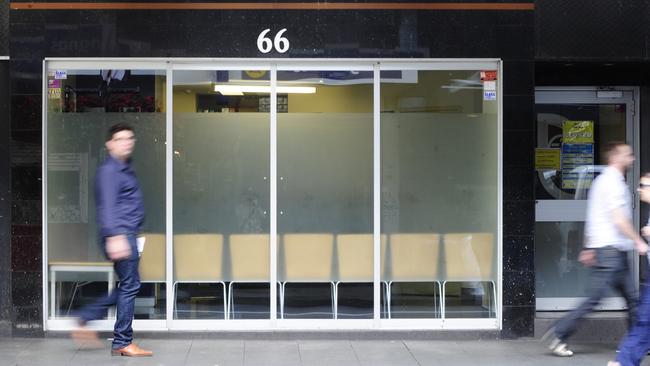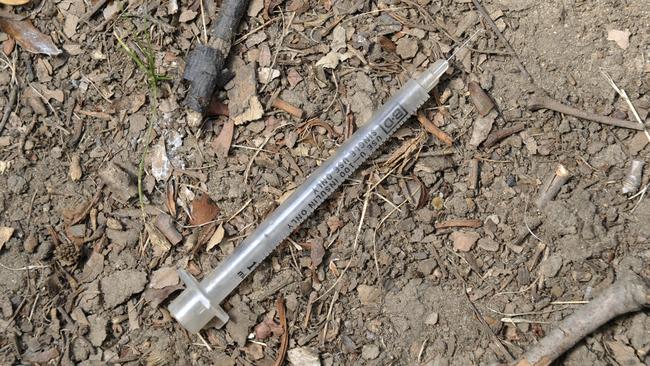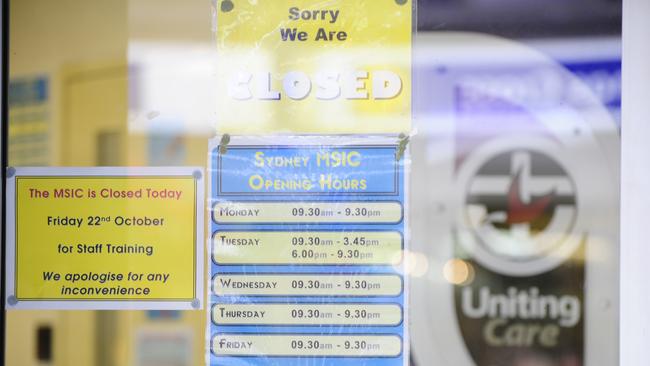Push for western Sydney medically supervised injecting centre shut down by government
A FRESH push to introduce a western Sydney safe space where intravenous drug users can legally inject narcotics under medical supervision has been dismissed by the government — but some say it should go ahead. Here are the areas one professor has proposed.
NSW
Don't miss out on the headlines from NSW. Followed categories will be added to My News.
A FRESH push to introduce a western Sydney safe space where intravenous drug users can legally inject narcotics under medical supervision has been dismissed by the government and slammed by a local politician.
Academics from Western Sydney University released a report highlighting the need for the region to implement a medically supervised injecting centre (MSIC) similar to the one established in Kings Cross in response to the heroin problem of the late 1990s.
Western Sydney University professor of criminology Stephen Tomsen said the Kings Cross MSIC had been a “positive development” responsible for cutting potential infections and overdose deaths, without disrupting local social and business activities.
MORE: HEROIN NUMBERS ON THE RISE IN SYDNEY
He added interviews with clients of the Kings Cross centre showed many had experienced difficulty in travelling from outlying parts of Sydney to reach the centre, while some intravenous drug users living outside the CBD or nearby suburbs simply couldn’t commute.
“Everybody who lives on Sydney’s outskirts knows how time consuming and arduous a back and forth trip to the inner city can be,” he told The Daily Telegraph.
“There is also a lot of petty surveillance imposed on travellers by transport security and NSW Police teams. This can constantly focus on people who look dishevelled, poor or physically unwell.
“So people who are drug users, but may not even be carrying drugs around with them, can feel very exposed to this scrutiny and an arbitrary stop, interrogation and search.”

Prof Tomsen said a report showed Sydney’s western and southwest suburbs contained roughly the same proportion of people who injected drugs as those in the inner city, but said the booming population had “unmet needs for public infrastructure and health services”.
He proposed Liverpool as a leading candidate for the second MSIC, but said Parramatta, Bankstown, and Penrith were also good options as they were key transport hubs.
“The best location for these and any other medical service is in proximity to where the clients and potential clients live,” he said.
MORE: DRUG BUST SPARKS MEMORIES OF HEROIN CRISIS
A spokesman from NSW Health said the state government will not be relocating or expanding the MSIC, while also dismissing claims it was not providing adequate services for drug users from the region.
“We are committed to providing alcohol and drug services in Western Sydney and have recently given additional funding of $3 million over four years to Western Sydney Local Health District for Substance Use in Pregnancy services and for services to help people with severe and complex substance use issues,” the spokesman said.
MORE: FACEBOOK HOME TO ILLEGAL DRUG TRADE
“The NSW Government will invest more than $850 million over four years for drug and alcohol services across the state. In 2018-19, $225.3 million has been allocated to drug and alcohol services.
“This includes enhancement from the 2016 Drug Package which committed an additional $75 million over four years to help more young people, support more families and to help more people access treatment.”

Liverpool state Labor MP Paul Lynch also strongly opposed the push for the western Sydney suburb to be home to a second medically supervised injecting centre.
“No such facility can or should proceed without community support. I have seen no evidence of any such support,” he said.
MORE: OPIOD DEATHS NOW EXCEED HEROIN
Prof Tomsen said he believed people opposed to the idea had not looked at the success of Kings Cross closely enough.
“Local politicians, developers, promoters and estate agents think a supervised injecting centre will conjure up an adverse public image for any local area. And some of them think it will then reduce business opportunities and property values, although clearly that is not what happened in Kings Cross after the MSIC was established,” he said.
MORE: LETHAL HEROIN DOSE HAS COPS ON EDGE
City of Canterbury Bankstown Mayor Khal Asfour did not immediately shut down the idea, but said the NSW Government had not provided the area with enough funding to develop Bankstown as a health and education precinct.
“The Bankstown and Canterbury Hospitals received minimal funding in the Government’s recent budget, while a massive $750 million was allocated to Liverpool Hospital,” he said. “We, therefore, do not have the capacity to accommodate and support any proposed second injecting room in Sydney.”

THE STORY OF THE KINGS CROSS MSIC
The 1990s saw an increasing number of businesses in Kings Cross in Sydney illegally renting rooms for purpose of injecting illicit drugs and by the end of the decade, the inner city suburb had the highest concentration of deaths from drug overdoses in Australia.
The 1997 Royal Commission in the NSW Police Service recommended the establishment of a MSIC, with the proposal also attracting strong support from residents.
However, a report from Joint Select Parliamentary Committee into Safe Injecting Rooms voted against the proposal just one year later.
After months of community consultation, Uniting Church lodged an application for a licence to operate MSIC at Kings Cross in June, 2000.

The application was approved and in May, 2001, the MSIC opened its doors in Kings Cross — it was the only service of its kind in the southern hemisphere.
Over the next decade, three independent evaluations of the MSIC found positive results from the service, while further reports from NSW Bureau of Crime Statistics and Research showed no adverse outcomes on crime in the area.
In November 2010, legislation was passed to remove the “trail status” of the MSIC, with the Kings Cross clinic now able to operate permanently.
What are your thoughts on the introduction of a second medically supervised injecting centre in Sydney? Continue the conversation in the comments below or with Matthew Dunn on Facebook and Twitter.

